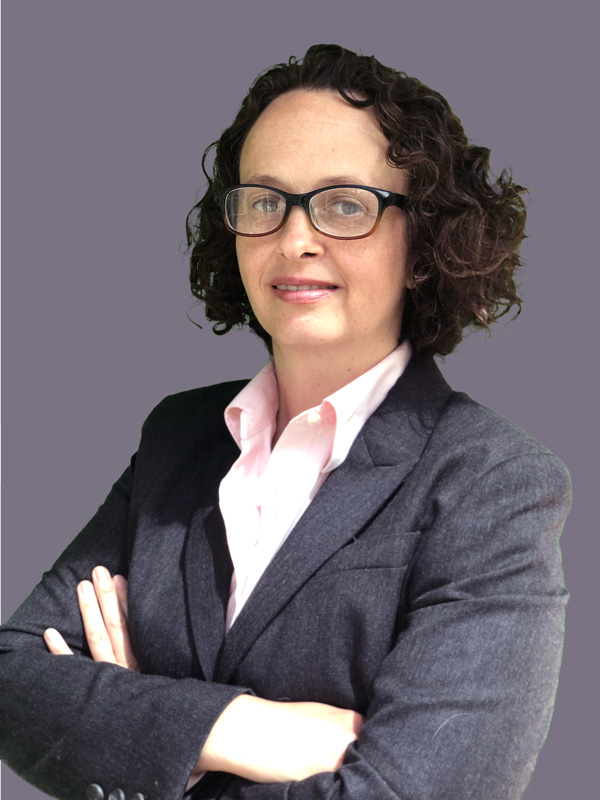Four Steps to Making Professional and Personal Life Change in 2021
 Our lives changed one year ago this week, in ways we could not have predicted. Most professional women lost the office, the commute and socialization with clients, coworkers and friends in New York City, London or wherever we live and work around the country and the world.
Our lives changed one year ago this week, in ways we could not have predicted. Most professional women lost the office, the commute and socialization with clients, coworkers and friends in New York City, London or wherever we live and work around the country and the world.
Cities emptied as many relocated to the countryside or the suburbs. Mothers took on 15+ more hours a week of domestic work and childcare, and some left work due to the strain. Others experienced a workforce reduction that cut across every sector in one way or another.
In an unprecedented year, many of us have felt shock, pain, loss and grief in different ways for different reasons. As most changes to our world endure, this brings another level of internal processing and feelings.
In a time where the external context has felt both uncertain and unfamiliar, many of us have felt more compelled towards reconnection with our center, our internal compass and our animating purpose—What do I value? What do I want to envision and create? Where do I want to focus my energy and attention?
These questions matters, now as much or more than ever. Here are four steps to support in the process of re-evaluation:
Step 1: Feel the feels.
Let yourself feel everything, but know that you are not your emotions, rather that you experience these emotions.
“Emotional Agility” is important. Being able to recognize and name how you feel and know that you can see it objectively, and not only experience it subjectively, means understanding that you are not the emotion.
Emotions are data that can help you understand what next steps are right for you. The amazing Dr. Susan David at Harvard has worked extensively on helping people understand that if we put our emotions to one side to embrace false positivity, we lose our capacity to deal with the world as it is, instead of as we wish it to be.
In her TedX talk, she recounts that over the years, when people say they don’t want to try something or they prefer to avoid disappointment or they want fear and shame to just go away, her humorous response is: “I understand, but you have dead people’s goals.”
David offers a free quiz to begin the journey of becoming more astute about your emotions, and her bestselling book is a great way to start getting in touch with your emotions as your guides.
“Normal, natural emotions are now seen as good or bad,” she states. “Being positive has become a new form of moral correctness. It’s unkind and ineffective.”
Ignore the societal call for relentless positivity and keep it real, so you can be honest with yourself about how you feel. You will be happier for it and more guided towards genuine contentment and joy, because you listened to yourself.
Step 2: Take Care of Inner Business.
“Wherever you go, there you are” is the saying.
Who are you? Do you behaviors line up with what you say matters to you? Or, what are you committing to, instead? How do you show up for yourself?
In her excellent book Act Like a Leader, Think Like a Leader and in her body of work on transitions, including during Covid (quick read here), Herminia Ibarra suggests that in the messy business of getting to where we want to go, we should consider not only our current selves but our future possible selves also.
“Possible selves are the ideas we all have about who we might want to become. Some are concrete and well-informed by experience; others are vague and fuzzy, nascent and untested,” writes Ibarra. “Some are realistic; others are pure fantasy. And, naturally, some appeal more to us than others.”
List your skills, your values and who you want to be. To self-assess your driving inner forces around recognition, fairness, and autonomy, for example, take the SCARF free quiz to see where you fall on the spectrum of these behavioral motivators.
Harvard’s longest running study on adult development suggests that while we say we want money and success, those who live the healthiest, happiest and longest actually share one essential experience —having deep human connection. That includes with ourselves.
Why not use the shake-up of this liminal time to shine an investigate light in the places where you have been on auto-pilot and check-in if you are still living in alignment with yourself, now?
Step 3: Commit to the Changes You Want to Make.
In this blurry time, I invite you to take stock as professional women to review what is working for you and what needs to simply change—in both your inner story and your outer physical world.
Change is hard and neuroscience and psychology shows us that we tend to stick with what we know through routines, even if the habits aren’t that useful to us anymore. Trying to live like we did before is pretty impossible, but being resilient and adaptable amidst whatever this new decade brings in our world is key.
It is the mental or even professional pivot, not the hanging on, that will empower you. Pivoting is something that we are all doing, whether it is small adjustments to how we work or a big transition into a new career altogether. Ibarra has always argued that we are all in transition at work, but we just don’t know it yet.
Businesses who have pivoted during the pandemic have seen the best results when they protect their core, while innovating slightly to meet needs of a changing customer. Company culture and brand purpose matters the most—who are you and what do you stand for?
If businesses are taking stock of these questions, take the same permission slip: Who are you, now? What do you value, now? Where do you wish to set your vision and put your energy, from now onwards?
Step 4: Elevate Your Development With a Coach.
I know this is going to sound strange, but as an executive and leadership coach, I effectively spend four to eight hours per day inside other people’s heads. Like in the movie Being John Malkovich, I become privy to the inner voices that we all have, and it is fascinating to witness the “truths” that we all tell ourselves.
We all have a bunch of constructs, albeit different ones, that make up our default operating system. Your brain, mostly your unconscious, is running the show and is building data models day and night via associative process. This comprises your worldview or mental model, literally the lens through which you experience your life—unless seen, challenged, disrupted and revisioned.
We’re often blind to what creates our limits and blocks. We all have goals, but we need to surface our subconscious gremlins, who are trying to thwart are best-laid plans for change by creating hidden competing agendas.
A great model for approaching this internal work by yourself is available in the book Immunity to Change, which really is a life-altering read that I have discussed at length here on the site. Imposter syndrome runs rampant with successful overachievers, and I have not met one client yet who doesn’t have some deep fear of failure, wobbly sense of worthiness, or hidden insecurity or shame.
But you don’t have to be beholden to these gremlins anymore, and you don’t have to overcome them alone, either.
You can do so much to clear the debris and make real change uninterrupted by your subconscious fears. Neuroscience research has now caught up with what social psychologists have been hypothesizing on for decades: The brain is high elastic or plastic and even the most entrenched behaviors can be modified.
Ibarra and others suggest that coaches are key to the process of making the changes you most hunger for: Firstly, in talking it all out. Secondly, in helping you make real and actionable plans. Thirdly, in acting as an accountability partner and advocate to be in your corner as you navigate the course to new territory.
Are you ready?
If you would like to work with Nicki Gilmour as your executive coach, she has some (daytime only) spots left or we have a cadre of vetted professional coaches available (some have evenings available). Please click here for an exploratory call.
Packages start at $799 for 2 sessions, 5 sessions for $1999 and ten sessions for $3,899.
by Nicki Gilmour, CEO and Founder, Evolved People (theglasshammer.com)







